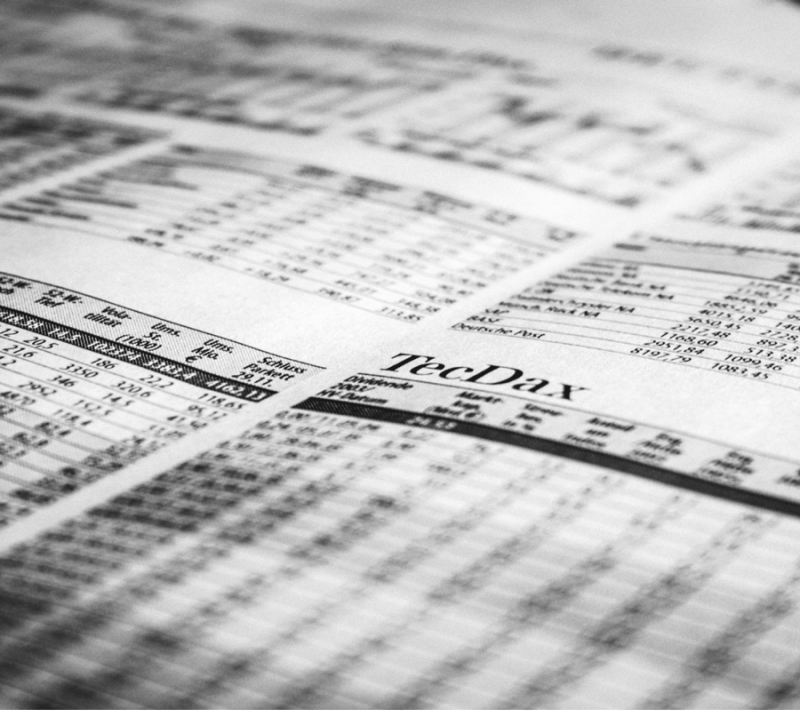If you want to have profit in the stock markets, you will need to have shares in a certain market. There are quite a lot of things that you need to make yourself familiar with. Outstanding shares are just one of these terms.
If you aren't familiar with the market or how outstanding share plays an active role in the stock company, you could find the answers that you seek from this article.

Also Read: What Is Tracking Stocks?
Contents
- What are Outstanding Shares?
- Market Capitalization
- Finding the Number of Outstanding Shares
- Stock Splits and Share Consolidation
- Blue-chip Stock in a Company's Market Capitalization
- Share Repurchase Programs
- Understanding the Basics of Shares Outstanding
- Outstanding vs. Authorized Shares
- Conclusion
- FAQs
What are Outstanding Shares?
Outstanding shares refer to all the combined shares that you and other competitors hold from a certain market. They need to be issued and authorized by all investors before they can be called outstanding shares. The number of shares outstanding a company has depends on the number of investors it can purchase units from.

These outstanding shares are put under the ‘capital stock' heading and can be calculated using basic and diluted share funds in an income statement. The primary fund is the current shares, while the diluted funds are represented by the warrant, capital notes, convertibles, etc. Whether the outstanding share will increase or not depends on these funds.
Market Capitalization
Increasing the number of outstanding shares is very important since they help increase the liquidity of a company's market capitalization assets. Corporate officers use the numbers to find whether the company has a strong foothold over the market with its outstanding shares.
Companies can also use these outstanding shares for several other reasons, like paying off convertible debts or providing incentives to the employees or company officers by offering them a part of the pie.
Finding the Number of Outstanding Shares
There is a lot of internal factors that could cause the share to fluctuate. A significant cause of the rise and fall in outstanding shares is issued by sudden changes in the treasury shares. Treasury stocks which are the total amount of stock that the company has a hold of has a lot of say in fluctuating the outstanding shares in the market.
Public Companies and Investor Relations
A financial report is an obligation of public traders to issue in their general sites to attract investors. These reports can be bundled in the investor relations section to find the total funds involved or reported in them.
Authorized Information Service
In many countries, there is an information service provided by local financial authorities. These services have the responsibilities of carrying out the certification of audits and calculating all the shares and funds related to them and the company's quarterly fillings. For instance, you can get a quarterly outstanding share report from the publicly accessible US EDGAR in the US.
Local Stock Exchanges
This is the most common source of finding the stocks outstanding from a company's balance sheet.
The local stocks exchange has access to all the funds that a brand or corporation uses and all the funds involved with them. All this information is available for public viewing as long as you can identify yourself as an investor on the local stock exchange websites.

Stock Splits and Share Consolidation
Stock splits are a great potion to increase the shares of any company outstanding share. The reverse is also done in some cases to bring the net price down for maneuverability. Stock splits are usually undertaken to bring a company's share price within the buying range of retail investors. The increase in the number of outstanding shares also improves the liquidity of assets in a company.
Both stock splitting and reverse stock splitting are essential to satisfy the company's total equity in the long run. An example of the stock splitting case would be when Netflix announced for 7-for-1 splitting in an attempt to attract more investors back in 2015. As the overall stock price decreased, the outstanding shares increased.
Also Read: How To Make Use Of Overweight Stocks
Blue-chip Stock in a Company's Market Capitalization
The market capitalization of blue-chip stocks depends wholly on the splitting of the shares outstanding. Of course, a mere increase in the stocks will not have much foreseeable success. The company also needs a consistent delivery of earnings.
While outstanding shares are essential for the liquidity of assets in a company, liquidity also depends a lot on the share float of the corporation. A company might hold 100 million shares outstanding, but if 95 million of these units are held by insiders, this may strain the company's liquid assets over the long run. This indicates that there are not many investors available for investment.
Share Repurchase Programs
Companies will often evaluate the stock prices to be undervalued due to a lower net income. In such cases, it will start a repurchasing shares program to successfully increase the market value of the remaining shares in the common market. This will help the company elevate the overall earnings per share while reducing the number of shares outstanding, thus successfully getting out of the open market.
Understanding the Basics of Shares Outstanding
There are many terms that you will need to grasp if you want to better understand how the outstanding shares impact the capital stock and market stock of a company in the long run.
Restricted Shares and Floats
To attain a better development in market capitalization, a company needs to draw a line between the shares it will allow the investors to purchase and the shares it will own. Restricted shares are stocks from a company that cannot be a part of any transaction involving external investors. They need to be within the company's insiders or institutional investors.
Another term that you need to be familiar with is the float. The float refers to all the shares that can be sold or bought without any restriction to the public. To have enough liquid assets with restricted stock, they need to have the perfect ratio of restricted shares and floats. This is vital if you want to keep a stable source of equity financing.
Authorized Shares
Authorized shares refer to the number of shares that a company holds and releases within a period. The amount to be removed depends totally on the signed board of shareholders. Typically this is done t increase the treasury shares within the corporation. On the other hand, this could also increase the number of liquid assets on hand to pay off any potential debts that might put a strain on calculating the earnings.
Outstanding vs. Authorized Shares
Because of the nature of these share types, many people often confuse these stocks with each other. However, they are different but vital in calculating essential ratios used to analyze financial calculations. Additional funds like hedge funds and mutual funds are crucial parts of the open market and shares outstanding.

The key difference between the two is that authorized funds are issued as outstanding funds to increase the treasury stocks so that a company can pay off any potential debts. After the debts are paid off, the shares are repurchased.
On the other hand, outstanding funds are already part of the float since the beginning and exist for long-term investment instead of quick sources of cash. They are sold without any thought of share repurchases.
Shares outstanding are also sold in the secondary market to increase the number of stocks in the market. The total number of outstanding shares can never be greater than the total number of authorized shares, as they are usually noted in a company's articles of incorporation of a company's market capitalization.
Conclusion
A company's overall finances primarily rely on shares outstanding and the circulation. Whether the finance will be static or will fluctuate depends on the asset circulation of outstanding shares. So, it's a must to have a clear idea of how the outstanding shares work for anyone involved with stock exchanges.
FAQs
Is it good to have shares outstanding ?
While too many outstanding shares could create a problem in the company, it is still vital to have outstanding shares for liquidity, particularly in a public company, to find any issued shares and company-held shares.
How do you calculate number of shares outstanding?
During reporting periods, officers in the corporate are responsible for calculating the number of outstanding shares in the corporation. The amount of outstanding shares is equal to the amount of issued shares minus the amount of treasury shares held by the company.













